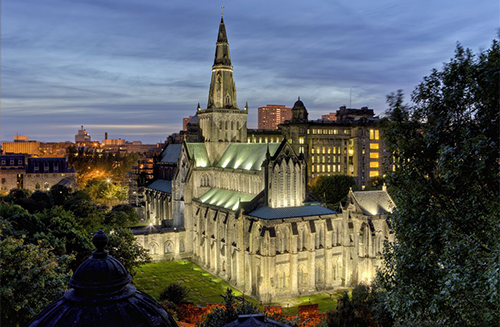
Church History & need
Scotland is experiencing a significant decline in church attendance, with the Church of Scotland’s membership dropping dramatically from 1.3 million to just 300,000 over the past 60 years. This decline has led to the repossession and sale of many church buildings, reflecting a broader trend of Scots moving away from the Christian faith.
RERVERSE EVANGELISM: Reviving the Fear of the Lord through Kenyan Missioners

State of the Scotish Church
Scotland is experiencing a significant decline in church attendance, with the Church of Scotland’s membership dropping dramatically from 1.3 million to just 300,000 over the past 60 years. This decline has led to the repossession and sale of many church buildings, reflecting a broader trend of Scots moving away from the Christian faith. Decline in Church Attendance The Church of Scotland has seen a staggering decline in membership, with numbers plummeting from approximately 920,000 in 1982 to around 270,300 in recent years, representing a 70% decrease. Currently, only about 60,000 individuals attend services regularly, highlighting a significant drop in active participation.

Repossession and Sale of Church Buildings
Many historic church buildings are being sold off as congregations dwindle and financial resources diminish. The Church of Scotland is undergoing a major property sell-off, with hundreds of churches, manses, and halls slated for sale over the next few years. This trend is not limited to one denomination; various churches across Scotland are facing similar fates, with notable buildings in cities like Inverness and Glasgow being put on the market.

Abandonment of the Christian Faith
The decline in church attendance is indicative of a broader cultural shift in Scotland, with many individuals identifying as non-religious or abandoning traditional Christian practices altogether. The rise of non-religious marriages, which now outnumber religious ceremonies, further illustrates this shift in societal values. Experts suggest that Scotland is undergoing a profound ethical transformation, moving towards a more secular identity without replacing traditional religions with new faiths.

Cultural and Social Implications
The loss of church buildings and the decline of organized religion are seen as detrimental to community cohesion, as churches historically served as social anchors in towns and villages. The Church of Scotland’s inability to effectively communicate its role and relevance to modern society has contributed to feelings of disappointment and disconnection among congregants. As traditional religious institutions struggle, there is a growing need for churches to redefine their identity and mission to attract new members and remain relevant in contemporary society.

Get Involved
Whether you’re called to serve as a missionary, provide financial support, or join our prayer circles. There’s a space for you.
Ways yo get involved
Become a Missionary
Support Financially
Join Prayer Circles
Training Programs
Buy a church

The problem
Many historic church buildings are being sold off as congregations dwindle and financial resources diminish. The Church of Scotland is undergoing a major property sell-off, with hundreds of churches, manses, and halls slated for sale over the next few years. This trend is not limited to one denomination; various churches across Scotland are facing similar fates, with notable buildings in cities like Inverness and Glasgow being put on the market.

The Cause
The decline in church attendance is indicative of a broader cultural shift in Scotland, with many individuals identifying as non-religious or abandoning traditional Christian practices altogether. The rise of non-religious marriages, which now outnumber religious ceremonies, further illustrates this shift in societal values. Experts suggest that Scotland is undergoing a profound ethical transformation, moving towards a more secular identity without replacing traditional religions with new faiths.
